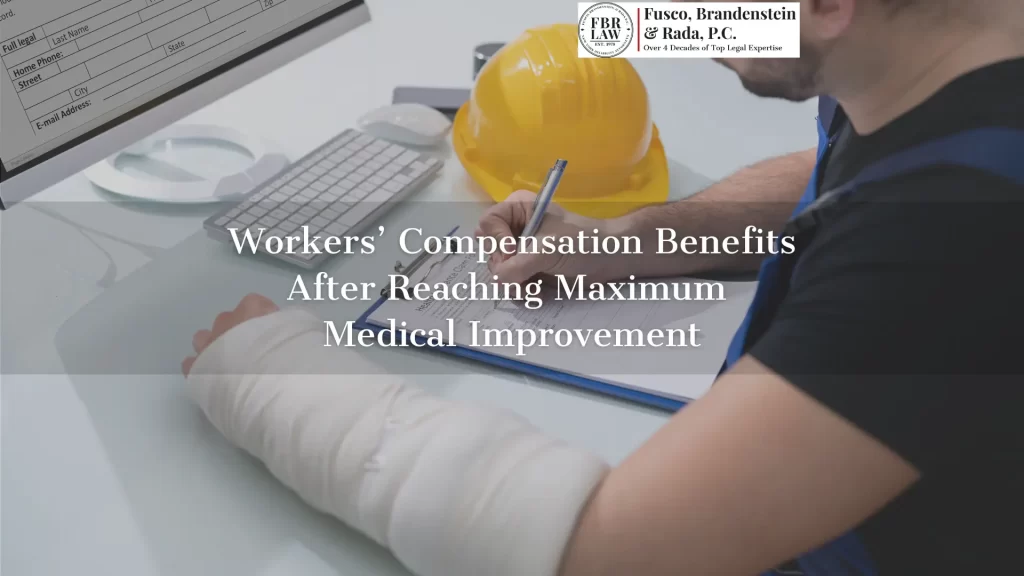
Workers’ compensation can be confusing, especially with all the terms used to describe different milestones and stages of a claim. One of the most important terms to know about is maximum medical improvement (MMI).
What Is Workers’ Compensation
Workers’ compensation protects employees injured at work or those who contract a debilitating illness because of work conditions. For example, if you contracted lung cancer because of the chemicals you inhaled at work, you may pursue a workers’ compensation claim. The two most important benefits under workers’ compensation are wage replacement and medical benefits.
In many cases, those two benefits are the only reason workers can make ends meet and get medical care when injured on the job. Once you start receiving workers’ compensation, your goal is to fully recover, while the insurance company hopes that you reach maximum medical improvement sooner rather than later.
What Is Maximum Medical Improvement
Maximum medical improvement (MMI) is a legal term that means you have recovered as much as you can reasonably be expected to. When your doctor determines that you have met MMI, it means they believe your condition has improved as much as it is likely to. For example, suppose you injured your neck and have limited mobility because of that. Reaching MMI means that your doctor has determined your mobility will not improve.
The finding of MMI is vital to every case because it can trigger different milestones. For example, depending on your case, MMI could trigger:
- Termination of future payments – Once you reach MMI, your temporary disability benefits may end. You will likely transition into permanent disability benefits or return to work.
- Reassignment of injury classification – If you reach MMI and are permanently unable to return to work or are impaired, you may get reclassified from temporary disability to permanent disability.
- Implementing permanent work restrictions – If your doctor determines that you cannot perform certain tasks once you reach MMI, they may implement them.
- Settlement offer – When you reach MMI, it’s unlikely that you will recover any further. As a result, your employer or their insurer may make you a settlement offer. The offer may include compensation for your medical expenses and lost earnings, and in return, you cannot seek any more compensation for your injuries or illness.
Who Determines Maximum Medical Improvement?
A doctor is the only person who can determine whether you have reached MMI. Typically, your treating physician will make this determination. However, your employer’s insurance company can request an independent medical examination to confirm whether you have reached MMI.
Under New York law, only New York licensed board-certified physicians can conduct an independent medical examination. They must have adequate knowledge to assess the injuries or illness. So, for example, the insurance company cannot hire an eye doctor to evaluate whether you’ve reached MMI when your claim is based on a broken collar bone.
If the insurance company requests an independent medical examination, you must attend the appointment. However, you do have some rights that you can assert, including the right to:
- Record the examination
- Bring someone with you
- Get reimbursement for the cost of attending the examination
What If My Injury Gets Worse After Reaching Maximum Medical Improvement?
MMI plays an essential role in determining how much compensation you will receive. However, it doesn’t mean that your injury cannot get worse.
Once it’s established that you have reached MMI, you might receive a permanent impairment rating (PIR). This rating reclassifies you from temporary to permanent and helps establish what limitations your injury or illness will place on the rest of your life.
If you begin to get worse after you’ve reached MMI, you should consult an attorney and doctor who can evaluate your symptoms and case.
What Is a Permanent Impairment Rating?
 After you reach MMI, you might receive a PIR. This rating is based on the portion of your body injured or directly affected by your illness. For example, you would have a higher PIR if you lost your big toe than if you lost a little toe, because your big toe is more important for balance.
After you reach MMI, you might receive a PIR. This rating is based on the portion of your body injured or directly affected by your illness. For example, you would have a higher PIR if you lost your big toe than if you lost a little toe, because your big toe is more important for balance.
Your PIR rating might indicate that you are partially impaired and can return to work. On the other hand, it could indicate that you cannot return to work. This rating is vital for determining the compensation you can receive after you reach MMI.
Contact a New York Workers’ Compensation Attorney to Discuss Your Options
At Fusco, Brandenstein & Rada, P.C., we understand how significant workers’ compensation benefits are to making ends meet while you are out of work because of a work-related injury. Our worker’s compensation attorneys are experienced in dealing with insurance companies and can help pursue the compensation you need. Contact our legal team today to discuss your options at 516-496-0400 or online for a free and confidential consultation. Our disability lawyers for injured workers are ready to fight for your best interests.
Related Reading:
